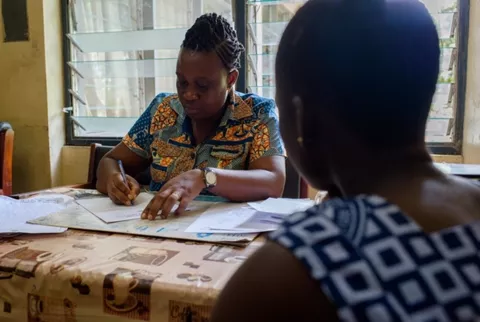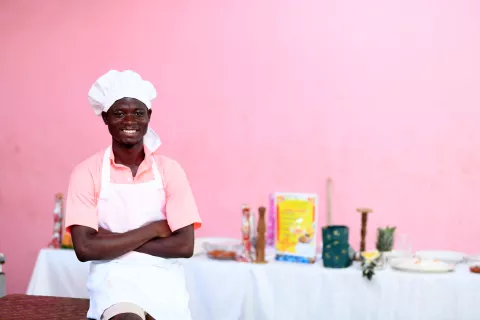Global polycrisis creating uphill battle to end child marriage - UNICEF
Sub-Saharan Africa is over 200 years away from ending the practice of child marriage at this current pace – new analysis warns

Despite a steady decline in child marriage in the last decade, multiple crises including conflict, climate shocks, and the ongoing fallout from COVID-19 are threatening to reverse hard-earned gains, according to a new analysis issued by UNICEF today. The report is released as this week, 23 countries, including Ghana, are attending a UNFPA - UNICEF Global Programme to End Child Marriage Phase III (2024 – 2030) workshop in Johannesburg, South Africa.
"The world is engulfed by crises on top of crises that are crushing the hopes and dreams of vulnerable children, especially girls who should be students, not brides," said UNICEF Executive Director Catherine Russell.
"Health and economic crises, escalating armed conflicts, and the ravaging effects of climate change are forcing families to seek a false sense of refuge in child marriage. We need to do everything in our power to ensure that their rights to an education and empowered lives are secured."

Worldwide, an estimated 640 million girls and women alive today were married in childhood, or 12 million girls per year, according to the latest global estimate included in the analysis. The share of young women who married in childhood has declined from 21 per cent to 19 per cent since the last estimates were released five years ago. However, in spite of this progress, global reductions would have to be 20 times faster to meet the Sustainable Development Goal of ending child marriage by 2030.
UNICEF Executive Director Catherine Russell said: "We've proven that progress to end child marriage is possible. It requires unwavering support for vulnerable girls and families. We must focus on keeping girls in school and making sure they have economic opportunities."
Sub-Saharan Africa – which currently shoulders the second largest global share of child brides (20 per cent) – is over 200 years away from ending the practice at its current pace according to the new UNICEF analysis. Rapid population growth, alongside ongoing crises, look set to increase the number of child brides, in contrast with the declines expected in the rest of the world.
With the support of the Global Programme to End Child Marriage (GPECM), Ghana has accelerated its national efforts to end child marriage across the country. Since 2016, over one million adolescent girls have received prevention and care interventions across sectors to address child marriage.
The GPECM is funded by the Governments of Belgium, Canada, Italy, the Kingdom of the Netherlands, Norway, and the United Kingdom, as well as the European Commission and Zonta International.
“UNICEF continues to support the Government of Ghana’s efforts to end child marriage. It is encouraging to see the commitment to the UNFPA-UNICEF Global Programme to End Child Marriage and we look forward to continued efforts to reverse the threat of this practice and give children the best opportunities in life,” said UNICEF Representative a.i. Fiachra McAsey.
Access the report and data here.
Media contacts
About UNICEF
UNICEF works in some of the world’s toughest places, to reach the world’s most disadvantaged children. Across more than 190 countries and territories, we work for every child, everywhere, to build a better world for everyone.
For more information about UNICEF and its work, visit: www.unicef.org




